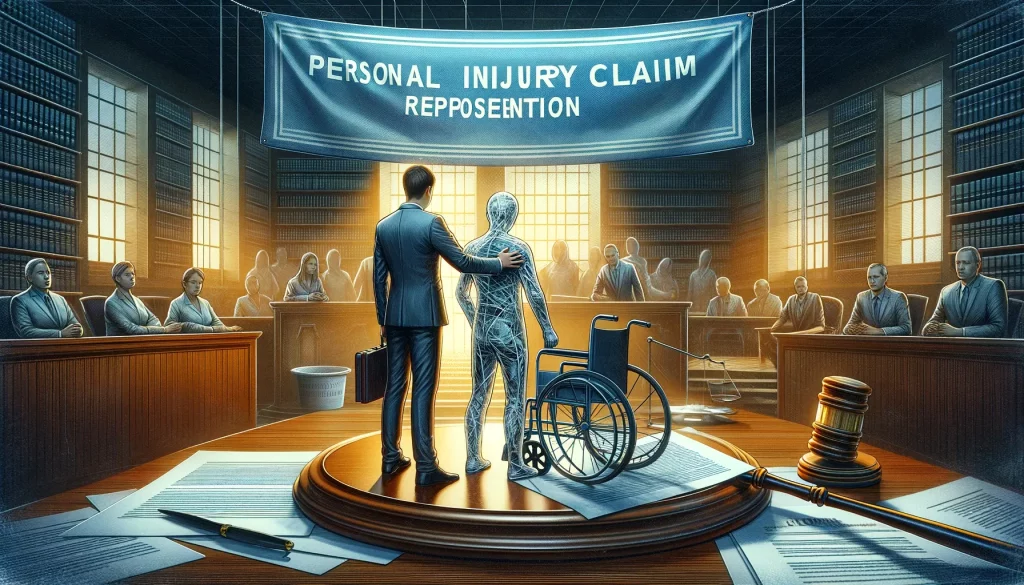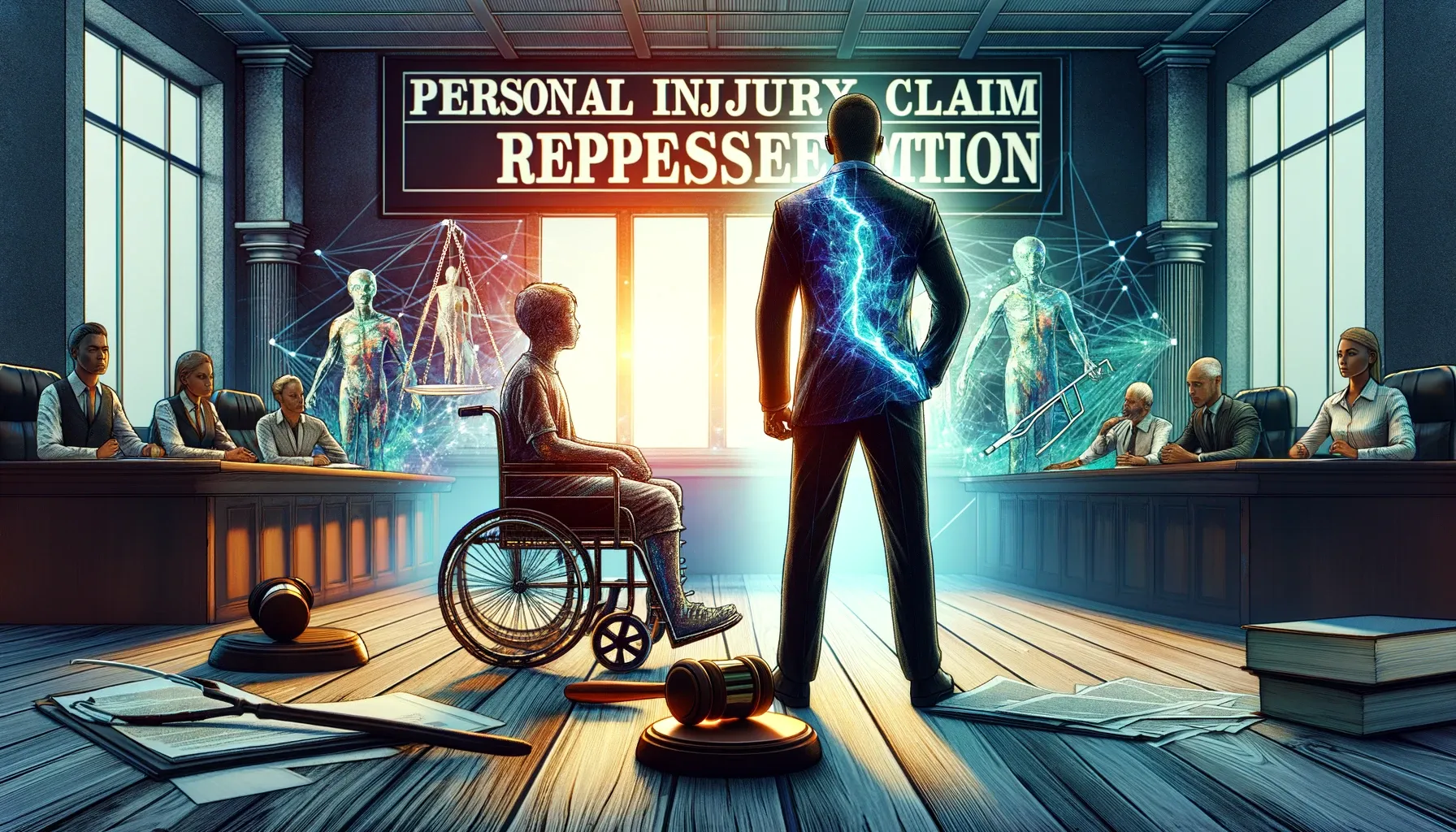The aftermath of a personal injury can be a disorienting whirlwind. Pain, medical bills, lost wages, and emotional distress all coalesce into a complex scenario demanding immediate attention. When this burden falls upon someone incapable of navigating the legal labyrinth of a personal injury claim, the question arises: can you, as a concerned loved one, step in and advocate on their behalf?
The answer, like most legal matters, is nuanced. The ability to file a personal injury claim for another individual hinges on their legal capacity and the specific circumstances of the injury. This article delves deep into the intricacies of this often-confusing terrain, equipping you with the knowledge and resources to make informed decisions for your loved one’s well-being.
Understanding Legal Capacity: Who Can Make a Claim?
Legal capacity, in simplest terms, refers to an individual’s ability to understand and make informed decisions about their legal rights and interests. When someone lacks this capacity due to age, disability, or medical conditions, they require representation to assert their legal claims.
For adults:
- Minors: Children under the age of 18 lack legal capacity. A litigation friend, typically a parent or legal guardian, can file a personal injury claim on their behalf.
- Incapacitated Adults: If an adult becomes mentally or physically incapable of managing their own affairs due to illness, injury, or age-related decline, a court-appointed guardian or someone with a durable power of attorney can act on their behalf in legal matters, including pursuing personal injury claims.
For deceased individuals:
- Fatal Injuries: If someone loses their life due to negligence or wrongful conduct, their estate representative, usually the executor or personal representative named in the will, can file a wrongful death claim seeking compensation for damages sustained by the estate and surviving family members.

Beyond Age and Capacity: Additional Considerations
While legal capacity forms the primary basis for representation, certain exceptions and complexities exist:
- Mental Health Conditions: Even if an individual is technically an adult, specific mental health conditions like dementia or severe depression may impact their capacity to understand the legal ramifications of a claim. Expert medical evaluations and court determinations might be necessary in such cases.
- Unconscious or Coma: If an injured individual is unconscious or in a coma, their legal representative can initiate the claim process while keeping the court informed of any changes in their condition.
- Urgent Medical Attention: In situations where immediate medical care is paramount, and a delay in initiating the claim could jeopardize the injured person’s health, the legal representative can proceed with the claim while prioritizing medical intervention.
The Claim Process: Stepping in as a Representative
If you find yourself navigating the legal landscape on behalf of a loved one, here’s what you can expect:
- Gathering Evidence: Compile medical records, accident reports, witness statements, and any other relevant documentation detailing the injury and its cause.
- Consulting with a Lawyer: Seek guidance from a qualified personal injury lawyer specializing in cases involving individuals lacking legal capacity. They will assess the specifics of your case, advise on the feasibility of a claim, and guide you through the legal process.
- Filing the Claim: Once evidence is gathered and legal counsel is secured, the lawyer will file the official claim with the appropriate court on behalf of your loved one.
- Negotiation and Litigation: The lawyer will engage in negotiations with the liable party’s insurance company or proceed to litigation if a fair settlement cannot be reached.
- Compensation and Distribution: If the claim is successful, the awarded compensation will be managed by the legal representative for the benefit of the injured individual or their estate, as determined by the court.

Beyond the Legalities: Supporting Your Loved One’s Healing Journey
Remember, while legal representation plays a crucial role in securing compensation, your primary focus should remain on your loved one’s physical and emotional well-being. Offer emotional support, assist with their medical needs, and connect them with relevant resources to aid their recovery.
Navigating the complexities of personal injury claims when representing someone else can be daunting. However, by understanding the legal framework, seeking expert guidance, and prioritizing your loved one’s well-being, you can ensure they receive the justice and support they deserve during this challenging time.
Can I make a personal injury claim on behalf of someone else?
Making a personal injury claim on behalf of another person is possible under certain circumstances. Generally, you can make a claim for someone else if they are unable to do so themselves due to physical or mental incapacity, or if they are a minor.
Remember, this article provides general information and should not be construed as legal advice. We encourage you to consult with a qualified personal injury lawyer for specific guidance tailored to your unique situation.

Jasper Bruxner is a passionate and versatile blogger with a keen eye for trends and a knack for crafting engaging content. As the founder of WendyWaldman.com, he has established himself as a trusted resource in a diverse range of niches, including food, tech, health, travel, business, lifestyle, and news. He tends to share the latest tech news, trends, and updates with the community built around Wendywaldman. His expertise and engaging writing style have attracted a loyal following, making him a respected voice in the online community.




